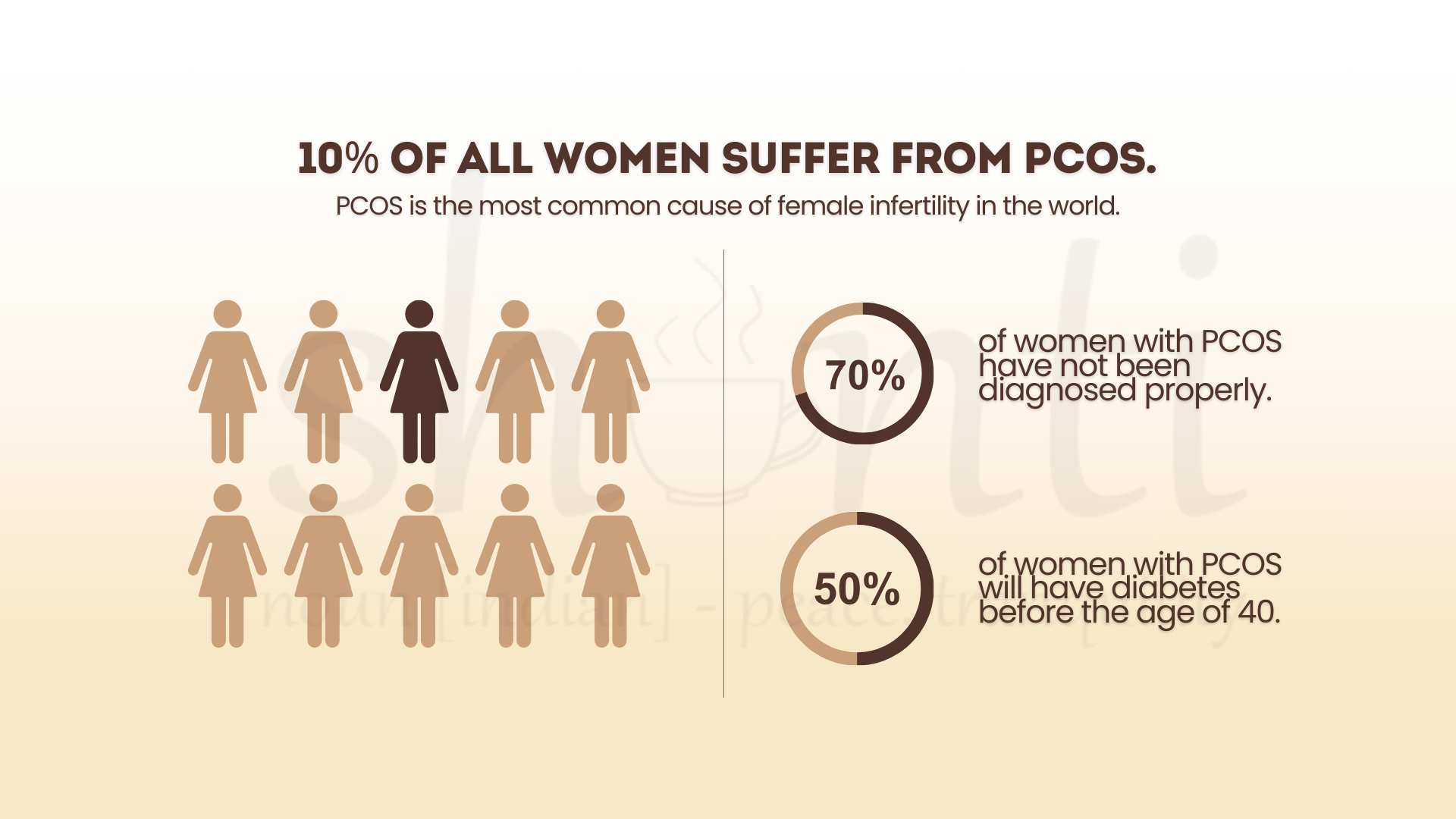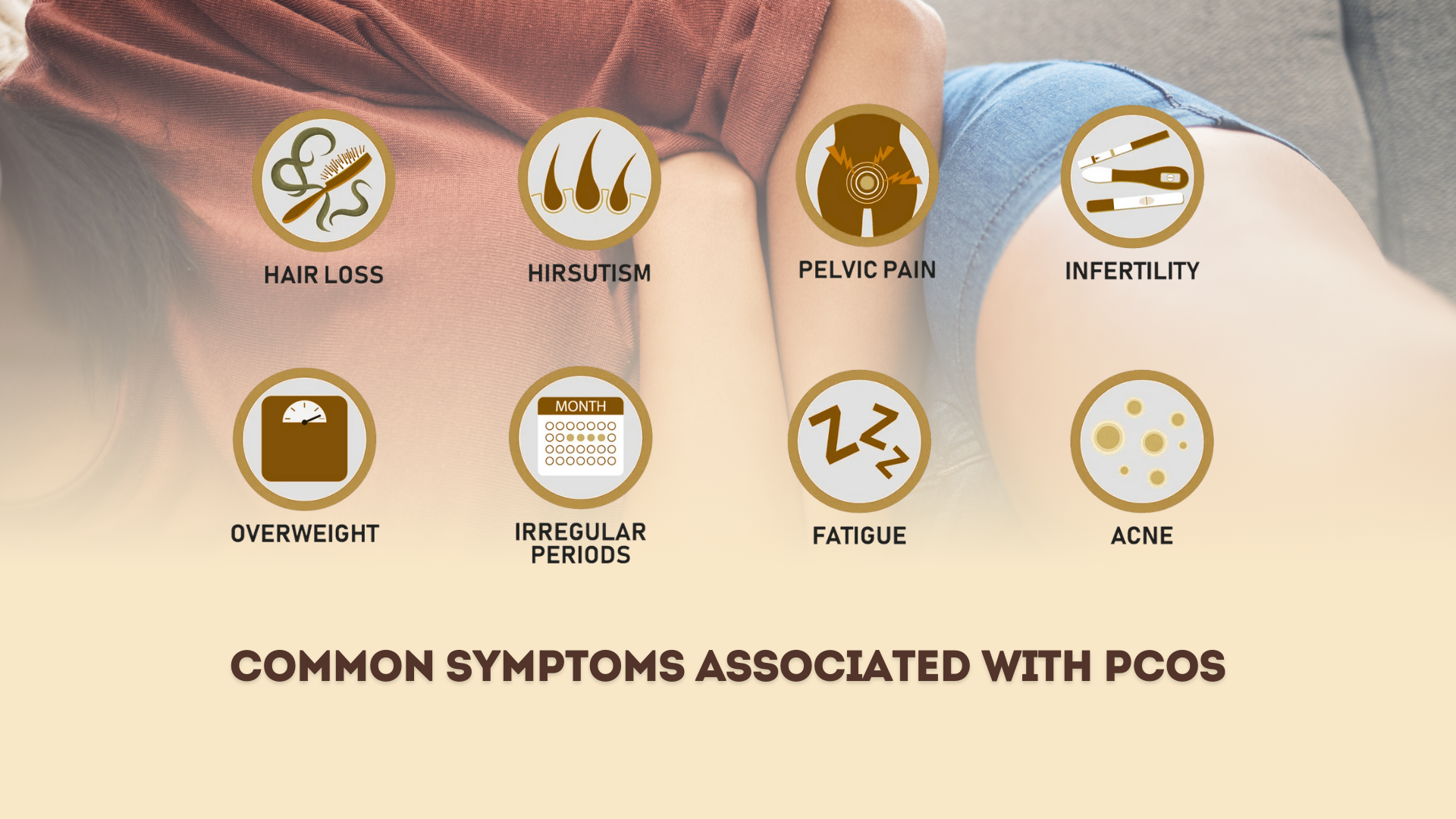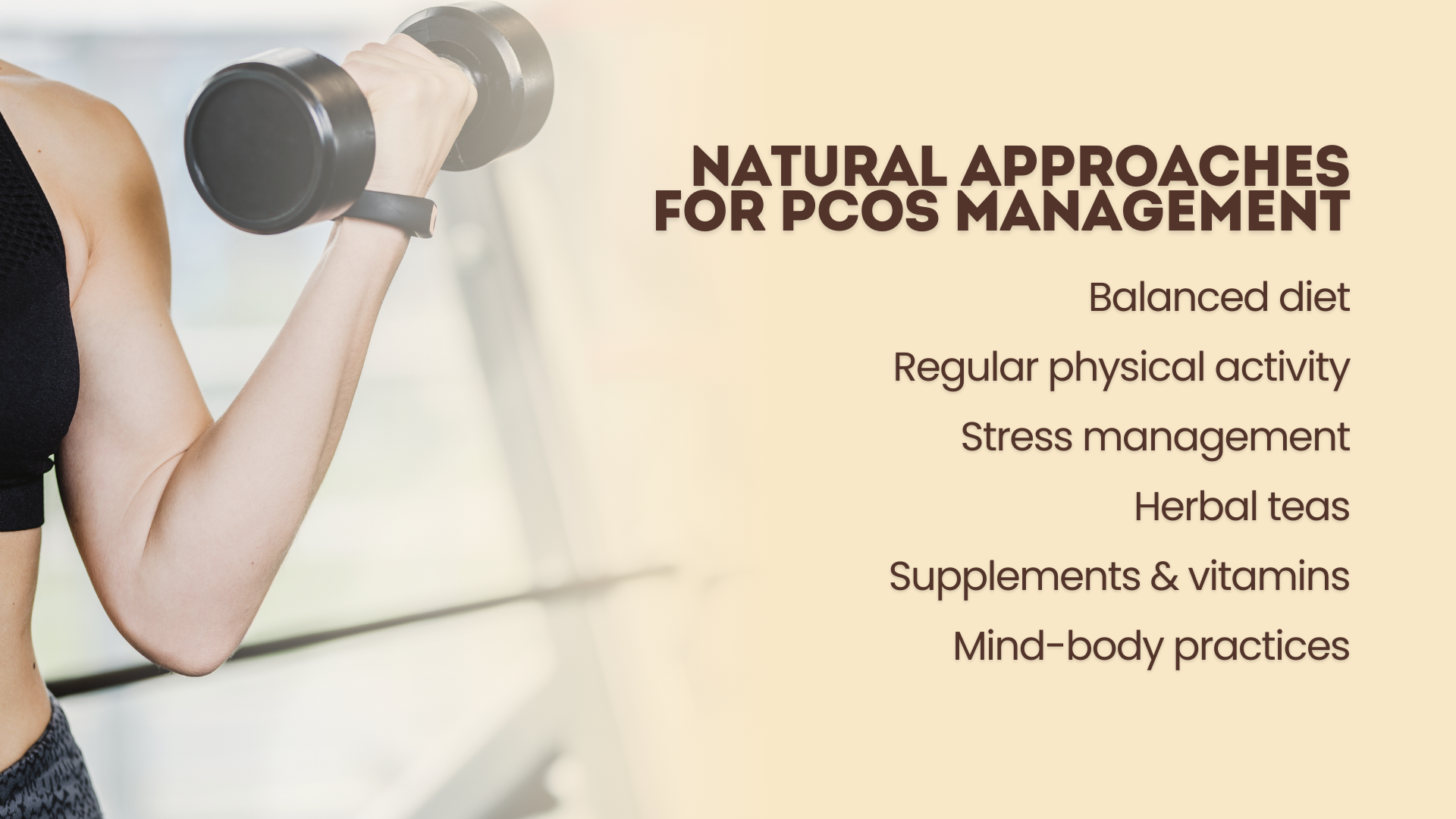Natural PCOS Support: The Lowdown & How to Feel More Like Yourself

Table of Contents
1. What Is PCOS?
Understanding the Hormonal Havoc

Did you know? 10% of all women worldwide suffer from PCOS, yet many remain undiagnosed. Awareness is the first step toward better health.
How PCOS Affects Overall Health
Medical research shows that PCOS can sometimes set the stage for additional health concerns. Here are some common health issues women with PCOS end up facing:
- Type 2 Diabetes: Insulin resistance—common in PCOS—can increase your risk of diabetes.
- Cardiovascular Issues: High blood pressure and elevated cholesterol levels may accompany PCOS, raising the risk of heart disease.
- Endometrial Cancer: Irregular or absent periods can lead to a thickened uterine lining, potentially increasing cancer risk.
- Mental Health Challenges: Constantly dealing with unpredictable symptoms (physical or emotional) may trigger stress, anxiety, or depression.
2. Symptoms of PCOS
The PCOS condition usually becomes distinctive through several key symptoms, significantly impacting your health as a woman.
Irregular Menstrual Cycles
One of the first clues you may notice is an unpredictable or absent period. This happens when the hormonal signals for ovulation are disrupted.
Excess Androgens & Their Effects
PCOS often involves elevated levels of androgens (sometimes called “male hormones”). You can usually tell these levels are raised by:
- Noticing excessive hair growth on the face or body (hirsutism)
- Thinning hair on the head, mimicking male-pattern baldness
- Persistent acne that doesn’t make sense
Weight Management Issues
Because insulin resistance is common, many women experience unexplained weight gain, particularly around the abdomen. This weight gain becomes frustrating because you’ll probably be unable to lose it even when you’re doing everything right, adding another layer of stress to your life.

You may have Pcos if you have some or all of these symptoms: Irregular periods, weight gain, acne, hirsutism, hair thinning, fatigue, acne, mood swings, and infertility. Understanding these signs can help with early diagnosis and management.
Fertility Struggles
Did you know that PCOS is considered one of the leading causes of infertility? That is mainly because of irregular or absent ovulation. Many women who have PCOS go on to have healthy pregnancies – it often just takes finding the right mix of medical help, healthy habits, and keeping stress levels in check.
Additional Symptoms
You might find yourself dealing with up-and-down moods, feeling anxious or down, and just being totally wiped out. Some women also notice patches of darker skin showing up or have trouble getting a good night’s sleep. PCOS looks different for everyone. What you go through might not be the same as what your friend with PCOS experiences.
How PCOS Is Diagnosed
usually, doctors will diagnose PCOS if you have at least two of these signs:
3. What Causes PCOS in Women?
Nobody really knows exactly what causes PCOS – it’s more like a puzzle with different pieces. Your genes play a part, and things like how your body handles insulin and hormones are mixed in there too.
Hormonal Imbalances
- Elevated Androgens can interfere with ovulation.
- Insulin Resistance triggers higher insulin levels, ramping up androgen production.
- LH & FSH Irregularities also play a role in stopping ovulation from proceeding normally.
Genetic Factors
- If PCOS runs in your family, you could be at a higher risk.
- Your genes might play a role in how your body manages hormones.
Lifestyle & Environment
- Poor Diet & Lack of Exercise: Unhealthy food choices and inactive lifestyle can worsen insulin resistance, which in turns makes your PCOS worse.
- Stress Overload: If you are under constant stress, cortisol levels heighten, leading to disrupted hormone levels and worsening PCOS further.
- Environmental Toxins:Toxins damage more then we give them credit for. It may disrupt your endocrine system and hormonal balance.
Metabolic Issues
4. Different Types of PCOS
PCOS is a diverse condition and can manifest in distinct ways. It is important to understand these types to help tailor your approach:
- Insulin-Resistant PCOS: This is the most common type of PCOS, featuring insulin resistance, weight gain, and high androgen levels.
- Inflammatory PCOS: This type of PCOS is connected to obesity, metabolic issues, and chronic inflammation.
- Hidden-Cause PCOS: Underlying health conditions can also be the cause of PCOS—like thyroid imbalances. You may also experience similar symptoms as PCOS.
- Pill-Induced PCOS: This can happen after stopping hormonal contraceptives but often clears up on its own over time.
5. Natural Approaches to Support PCOS
Medical treatments are super important, but many women feel better by adding lifestyle changes and natural remedies to their routine. These natural remedies can provide significant PCOS relief by targeting hormonal imbalances and improving overall well-being. They aren’t a substitute for a doctor’s advice, but they can be a great way to get extra support.

Balanced nutrition, regular physical activity, stress reduction, herbal teas, supplements, and mind-body practices work together to support hormonal health and alleviate symptoms naturally.
Lifestyle Changes
Balanced Diet & Nutrition
Improving your diet and sticking to healthy eating habits can help you with balanced insulin levels. It can also assist you in tackling symptoms of PCOS, especially if you have stubborn fat that just won’t go away.
Balanced Diet & Nutrition
If your body is not built for exercise, starting small may benefit you in many ways. You can start with:
Consistency.
Stress Management
Chronic and constant stress can worsen the hormonal chaos happening inside your body. To manage stress, you can try doing the following things:
Herbal Remedies & Teas
At Drink Shanti, we make tea blends with ingredients specifically chosen for hormonal and PCOS support. Our Hormone Happiness tea, for example, includes herbs that target stress, inflammation, and hormonal imbalance—key struggle areas for women with PCOS.
Swap out your morning coffee for a cup of green tea or our Blissful Buzz tea. Not only will it help your digestive system going but also help you stay energised during the day. The Blissful Buzz blend also works iIf you experience midday slumps.Simply brew and make a refreshing iced tea version (which can also be great in the summer months).
Supplements & Vitamins
Overall health goals cannot be achieved by simply taking a boatload of supplement. A balanced diet and stress free lifestyle are also important. That being said, using supplements can fill the gaps where needed. For PCOS, doctors usually recommend the following dietary supplements;
- Inositol (Myo-Inositol): It supports insulin sensitivity and regular cycles.
- Omega-3 Fatty Acids: This is a super supplement that helps reduce inflammation and promote hormonal health.
- Vitamin D: Correcting a vitamin D deficiency can improve insulin resistance and mood.
- Zinc & Magnesium: May assist in hormone regulation.
It is always a good idea to consult a healthcare professional and getting the necessary bloodwork done before introducing new supplements to your diet.
Mind-Body Practices
6. When to Seek Medical Advice
Okay, ladies, let’s be honest – sometimes we need a little extra support. PCOS can be a real rollercoaster, and it’s important to know when to reach out for professional help.
Think of it this way: you wouldn’t try to fix a broken car without taking it to a mechanic, right? The same goes for your health.
Here are a few red flags that might signal it’s time to chat with your GP:
- Irregular or absent periods for longer than three months: That's not normal, and it's definitely worth investigating.
- Hair today, gone tomorrow (or the other way around!): Sudden changes in hair growth, whether it's more hair in unexpected places or unexpected hair loss, can be a sign something's off.
- The weight struggle: If you're eating right, exercising regularly, and still finding it tough to maintain a healthy weight, it's time to rule out any underlying medical conditions.
- Trouble conceiving: If you and your partner have been trying for over a year without success, don't hesitate to seek guidance from a fertility specialist.
- Pelvic pain that won't quit: Any persistent or severe pelvic pain needs to be checked out by a doctor.
- Feeling down? If anxiety, depression, or other mood issues are really impacting your daily life, please reach out to a mental health professional.
Remember, you’re not alone in this. Your doctor is there to support you and help you find the best course of action.

If you experience irregular periods for more than 3 months, unexplained weight changes, or difficulty conceiving, it’s important to seek medical advice for a personalised treatment plan.
Whether it’s medication, fertility treatments, or other interventions, working with your healthcare provider allows you to create a personalised plan that’s right for you.
And of course, don’t forget about those natural PCOS approaches above. Combining medical care with things like herbal teas and mindful practices can create a truly holistic approach to managing PCOS.
7. Conclusion
Dealing with PCOS can feel overwhelming, but it doesn’t have to take over your life. Small changes, like eating more veggies and building calming routines, can make a big difference in balancing your hormones. Small, consistent lifestyle changes, combined with herbalPCOS teas like Shanti Tea’s Hormone Happiness , can bring meaningful PCOS relief and provide gentle daily support for balancing hormones over time.
